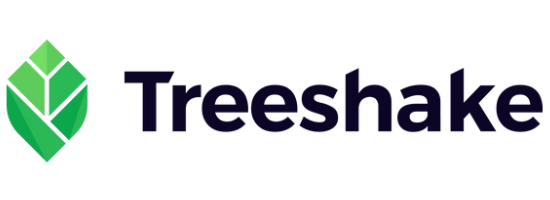Support the call for #internet4all
The World Economic Forum calls for #Internet4all
“What would an ecosystem capable of supporting a smarter Africa look like?” Elsie Kanza, Head of Africa and Member of the Executive Committee for the World Economic Forum asks this Thursday 07 April 2016 in a piece headlined "Only 20% of Africans use the internet – we must fix this digital poverty now".
In the article, Kanza details a series of ground-breaking tech innovations from Africa that proves that Africa’s greatest resource is its people. “Technology has already helped to bring about vast improvements in the way the region governs, feeds, lives, educates, trades and interacts with itself,” says Kanza, the former personal assistant and economic advisor to Jakaya Kikwete, the fourth President of Tanzania.
Ahead of the World Economic Forum on Africa that takes place in Kigali, Rwanda, from May 11 to 13, Kanza announces that over 1,000 Global Shapers in 94 cities across Africa will launch the #internet4all in Africa campaign to advocate for internet access as a basic right.
“We believe that, in the 21st century, this essential infrastructure should be available to everybody,” Kanza says, adding: “All Africans want is the chance to create for themselves the future that they deserve.”
South African Educational Technology Leaders Join the Call
In Cape Town, teacher-cum-internet access champion and entrepreneur Luvuyo Rani is fully behind the idea of #internet4all. Through his business - which takes internet access, computing and technology into emerging and rural communities - Rani has repeatedly seen how access changes people’s future and life.
“What we see in our stores is that people come in with their smartphones but don’t know how to use them, because they are used to only working on feature phones. We help them create Facebook accounts and an email account, and to register for WhatsApp. This literally changes their lives. Being connected means they can interact with friends and relatives regardless of where these people are. They can connect their businesses and they can look for schools or education opportunities. They can even access their banking. Just like water or air or food or the need for safety, a home or family, the internet is a need that should be placed within Maslow’s Hierarchy of needs.”
Meanwhile in Johannesburg, Andrew Barrett, Education activist and co-founder of the academic support non-profit, Olico, also supports the call for #internet4all
“A lack of access to the internet creates additional barriers to educational growth and to potential development, there is no question about that,” says Barrett, who advocates that internet access in Africa should be a basic right. “The internet is an important enabler for all kinds of factors including education and academic development, but also for growing one’s awareness of your position as a global citizen.”
Olico’s materials and online learning system could revolutionise South Africa’s dysfunctional education system, and improve the lives of many learners, but only if those learners have internet in order to access the open source content.
“Access to freely and readily available information is important to your place in the world, as well as to deciding what you want to do in the future. As more and more high quality open source material becomes available, access to the internet will be the great leveller in many ways,” he explains.
Andrew Rudge, CEO of The Reach Trust, agrees. “#Internet4All is one of the most important policy decisions we can take, because it is about giving individuals the power to make life-altering choices without a dependency on a traditional system. It is about a very real, life-altering freedom.”
This is not just talk, The Reach Trust, has helped more than 10 million people transform their lives through access to free education, health and counselling services on their mobile phones. Their recently launched LevelUp application even incentivises learners with vouchers that they can use to purchase groceries at South African retailer Shoprite.
We are only at the beginning of the #internet4all movement. The first 30% of Africans have gotten connected to the internet, and already miracles are happening. When we are all connected, there will be unimaginable opportunity for us all.
Please support this campaign by adding your voice - take to Twitter, Facebook, Instagram, YouTube or any other social media of your choice to explain why the #internet4all is a conversation we need to be having with our leaders.







